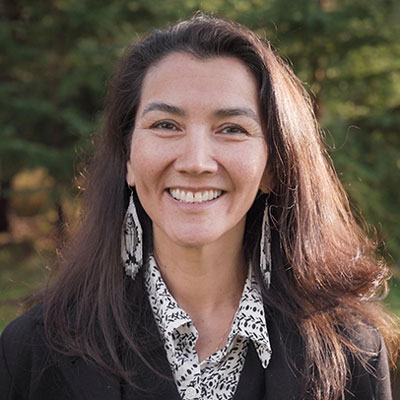Press Releases
Peltola Intros Domestic Seafood Production Act
Washington,
July 31, 2024
|
Kaitlin Hooker
WASHINGTON—This week, Representative Mary Sattler Peltola (AK-AL) introduced the Domestic Seafood Production Act (DSPA), legislation to help address food security in communities historically reliant on coastal and marine resources by helping them build seafood processing capacity for local use.
Peltola’s bill would prevent rapid offshore finfish aquaculture permitting and its harmful effects on the environment and local ecosystems by prohibiting permitting or construction of offshore fish farms in U.S. Federal waters in the absence of Congressional authorization. The bill encourages research on the effects of finfish aquaculture on the ecosystem and potential offshore locations that may be least impactful to the marine environment and commercially important fish stocks.
"In Alaska, so many communities rely on fish and seafood production both for subsistence and good-paying jobs,” said Rep. Peltola. “My bill would support our local fishing and maritime communities while strengthening our domestic seafood supply chain.”
Earlier this year, Rep. Peltola introduced the Bycatch Reduction and Mitigation Act, aimed at investing in new tech to help fishermen reduce their bycatch. Peltola also introduced the Fisheries Improvement and Seafood Health (FISH) Act, which would create a Fisheries and Ecological Resilience program to help increase fisheries resilience through coordinated data collection, innovative management tools, and cross-agency and Fishery Management Council collaboration. It would also mandate a GAO study on U.S. seafood competitiveness in international markets and a separate study to assess federal programs that support domestic seafood production.
View the full text of the Domestic Seafood Production Act (DSPA) HERE. View a one-pager on the bill HERE and a fact sheet HERE.
Support for the legislation: “It was through commercial fishing in Alaska that I came to deeply value how strong seafood systems are tied to the wellbeing of coastal communities, which directly ties to the wellbeing of the ocean. This bill provides much-needed support to communities that have long been rooted in fisheries for resilience, security, and cultural heritage. It also helps protect our shared oceans in Alaska and beyond,” said Ryan Horwath, a commercial fisherman out of Kodiak, AK.
“My community has been fishing for sockeye salmon in Bristol Bay for hundreds of years. I started at nine years old on my grandfather’s boat. Our fish is high-quality, high-nutrition, and the best in the world. And it’s very sustainable. I know that word is thrown around a lot now, but it truly is. Now I’ve been told there’s a glut of our fish, and they can’t be sold. Yet people say they want to build more fish farms because there’s not enough food. That doesn’t compute with me,” said Ronalda Angasan, a commercial fisherwoman of Ugashik and Kanatak descent, who lives in Anchorage, AK, and serves as agriculture program director at Alaska Village Initiatives.
###
|

